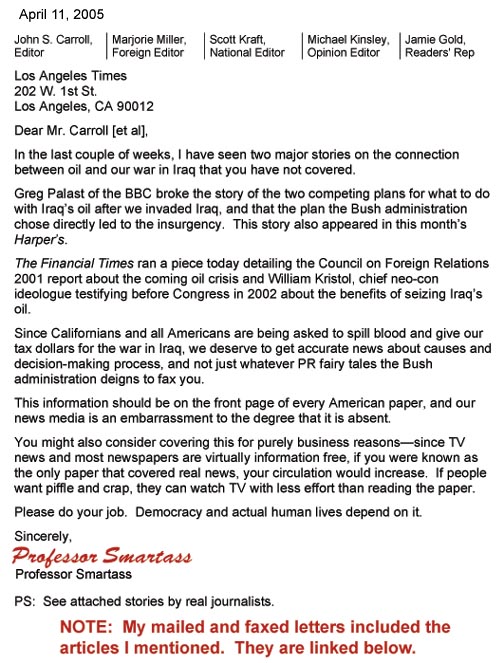http://web.archive.org/web/20001215051700/http://www.petroleum.co.uk/speeches.htm
It's nice to know that members of the Bush administration can be honest, even if it's with the London Institute of Petroleum not with us.
Cheney did show a sense of humor though: he complained that oil, unlike soapflake companies and other business interests, have little influence over politics.
If you know someone who still believes these guys are building bases around the Caspian Sea [in the former Soviet Union] and invading countries around the Persian Gulf because they are worried about terrorism, whap them over the head with the words of our lizard-like vice president, who rarely come out of his bunker to sun himself, usually when he smells oil.
Far from being out of left field, it echoes predictions in James Baker's report at Rice University, the Council on Foreign Relations, and in fact, any peak oil research. You rarely hear about this in the US press, but the Guardian in the UK had an important story on it today:
http://www.guardian.co.uk/life/feature/story/0,13026,1464050,00.html
KEY EXCERPTS:
Oil is unique in that it is so strategic in nature. We are not talking about soapflakes or leisurewear here. Energy is truly fundamental to the world’s economy. The [first] Gulf War was a reflection of that reality.
By some estimates there will be an average of two per cent annual growth in global oil demand over the years ahead along with conservatively a three per cent natural decline in production from existing reserves. That means by 2010 we will need on the order of an additional fifty million barrels a day. So where is the oil going to come from? Governments and the national oil companies are obviously in control of about ninety per cent of the assets. Oil remains fundamentally a government business. While many regions of the world offer greet oil opportunities, the Middle East with two thirds of the world's oil and the lowest cost, is still where the prize ultimately lies, even though companies are anxious for greater access there, progress continues to be slow.
looking back to the early 1990's, expectations were that significant amounts of the world's new resources would come from such areas as the former Soviet Union and from China. Of course that didn't turn out quite as expected.”
Some of the oil being developed in new areas is obviously very high cost and low margin. Companies that are finding it difficult to create new core areas through exploration are turning to production deals where they can develop reserves that are already known, but where the country doesn’t have the capital or the technology to exploit them. In production deals there is less exploration risk but dealing with above ground political risk and commercial and environmental risk are increasing challenges. These include civil strife, transportation routes, [Afghanistan, Syria, Lebanon] labour issues,[i.e. labor needs to be neutered] fiscal terms, sometimes even US-imposed economic sanctions.[referring to Iraq, Libya, and dealing with Taliban for pipeline in Afghanistan]
In many ways the traditional role of oil companies are changing. Increasingly we are seeing international oil and gas companies concentrating on managing investment, financial, commercial and political risk or above ground risk, while service companies are managing technical, completion and operating risk. Meanwhile, national oil companies are focused on managing their country’s national interest and its resources and in the domestic markets. This is part of the new resource rationalism of the 1990’s. NOC’s may own the resources, but when it is in the national interest to bring in outsiders to help develop them, they do so. Venezuela obviously is a clear example of what I would define as the new resource nationalism.
dick cheney peak oil iraq swing producer hydrocarbon law




